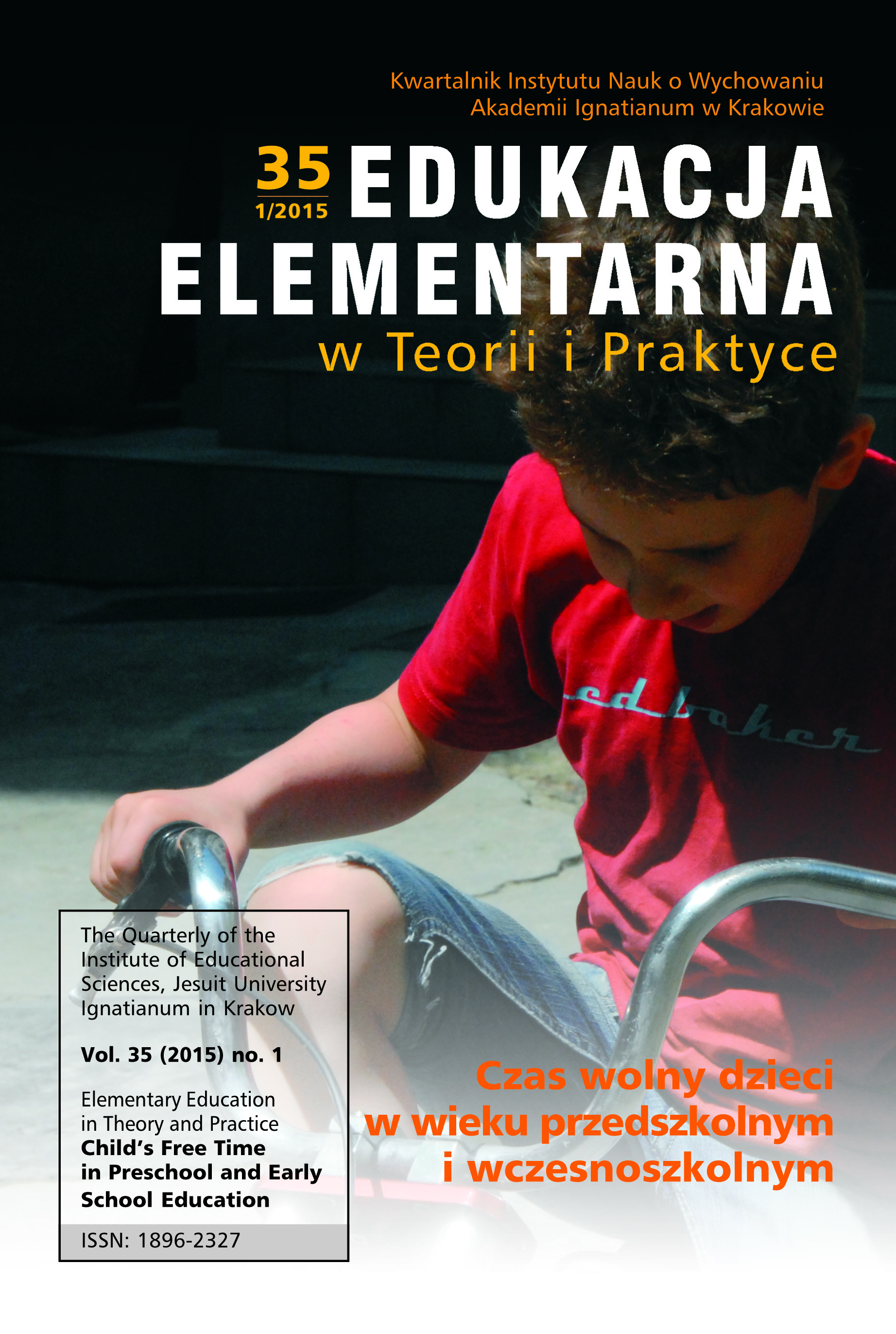Leisure Time of Children at the Preschool and Early-School Ages: Organization and Forms – Pedagogical Reflections
Leisure Time of Children at the Preschool and Early-School Ages: Organization and Forms – Pedagogical Reflections
Author(s): Jolanta Karbowniczek, Urszula OrdonSubject(s): Social Sciences, Education
Published by: Uniwersytet Ignatianum w Krakowie
Keywords: free time; leisure activities; preschool-age and early-schoolage children; teacher; family environment
Summary/Abstract: Free time is one of the fundamental concepts of pedagogy. The modern world, in all its dynamism, requires that we take a reflective and responsible look at the question of the organisation of free time. In the literature pertaining to this field of study, it is usually assumed that free time is time at the disposal of the individual after any obligatory tasks have been performed. It is usually used in order to relax, recharge one’s physical and mental health, for entertainment and for pursuing voluntary or disinterested social activities, to develop interests, passions and talents, or for the self-education of the individual. Thus formulated, our definition of it is multidimensional, as it involves many aspects of human functioning and draws attention to both the individual and social dimensions of leisure time. Problems connected with free time constitute an important aspect of the work of the kindergarten or early-school teacher, because they concern the development of rational habits connected with how a child’s free time is to be organized and spent, in both preschool and early-school environments. The kindergarten and early-school ages represent a period characterized by volatility in respect of interests and tastes, with all too little in the way of a grasp of the consequence of actions, or of choices being made to meet specific desires and goals. This is due to the fact that children, at a certain stage of their development, need practice if they are to choose the most suitable forms of active leisure for themselves and for each other. In encouraging valuable and thoughtful decision-making in children with respect to their management of their own free time, the latter need to be shown wise and rational ways of spending it. It should also be kept in mind that leisure time greatly influences the development of attitudes and value systems amongst both children and young people.
Journal: Edukacja Elementarna w Teorii i Praktyce
- Issue Year: 10/2015
- Issue No: 1 (35)
- Page Range: 33-46
- Page Count: 14
- Language: English

